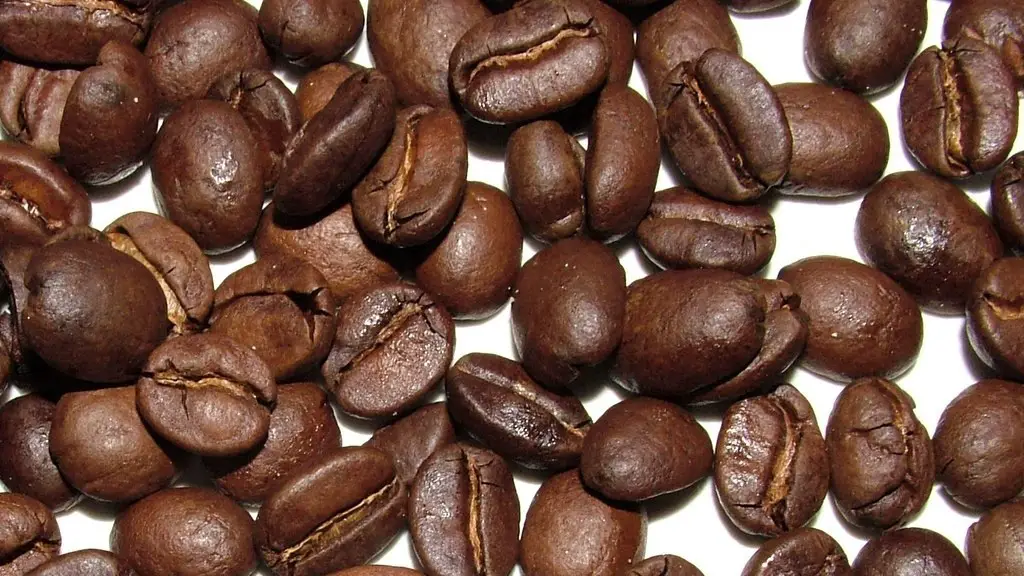Survey Results
Recent surveys suggest that around 64% of adults around the world drink coffee on a regular basis. In the United States alone, the figure is as high as 83%. There are signs that this figure is likely to rise even further in the coming years, as more and more people start to appreciate the benefits of consuming coffee.
One of the most common reasons why people drink coffee is because of its energizing properties. Coffee contains caffeine, which helps to stimulate the brain and gives the drinker a boost of energy. Caffeine has also been linked to improved mental alertness, memory, and focus.
Coffee is often referred to as a social lubricant, as it is considered to be one of the best drinks for bringing people together. It is a popular drink for social occasions, such as gatherings and meetings, as it has the ability to help people relax and enjoy each other’s company.
Coffee has also been linked to some health benefits, such as reducing the risk of type 2 diabetes and Alzheimer’s disease, as well as helping to improve cognitive function and mood. While the effects of coffee on health are still the subject of debate, it is generally considered to be beneficial in moderation.
When it comes to the frequency of coffee consumption, surveys suggest that about 74% of coffee drinkers only have one or two cups a day. Therefore, it is clear that most people drink coffee in moderation. However, there is a growing trend of coffee drinkers who consume more than four cups a day.
Overall, it is clear that coffee is popular around the world and that a significant number of adults drink it on a regular basis. Whether you are looking for an energy boost, social lubricant, or a health benefit, it is likely that you will find something in coffee to enjoy.
Economic Impact
The coffee industry plays an important role in the economy. According to the International Coffee Organization, the global coffee market is worth an estimated $100 billion. The industry also employs over 25 million people around the world, many of whom work in coffee-producing countries such as Brazil and Colombia.
The coffee industry has a direct impact on the global economy. For example, it contributes heavily to global trade, with coffee being the second most traded commodity in the world after oil. In addition, the industry plays a major role in the tourism industry, with many people visiting countries such as Ethiopia and Colombia specifically to explore the coffee-producing regions.
In addition to its economic impact, the coffee industry has a major social impact. Coffee production is an important source of income for many people in developing countries and is often the only way for them to earn a living. Therefore, by drinking coffee, we are not only fueling the economy and contributing to global trade, but we are also enabling people in these countries to earn an income and to provide for their families.
Finally, the coffee industry has a major environmental impact. Coffee production requires a huge amount of water and energy, as well as land. Moreover, many coffee-producing countries are developing, with little environmental regulation, so they often lack the resources to manage the environmental impacts of production.
Coffee Alternatives
While coffee is one of the most popular drinks among adults, there are also a range of alternatives available for those who want to avoid the energizing effects of caffeine. Herbal teas, for example, are becoming increasingly popular as a healthy and refreshing alternative to coffee.
Other alternatives include decaffeinated coffee, which is a great way to enjoy the flavor and aroma of coffee without the caffeine. Decaffeinated coffee often still contains a small amount of caffeine, but it is much lower than regular coffee. Similarly, there are now a number of low-caffeine coffees and even caffeine-free coffees available on the market.
Alternatively, many people opt for alternatives, such as plant-based beverages like oat milk, which are becoming increasingly popular. These beverages are a great way to add a touch of flavor to your drink without the caffeine, and they can also be used in a variety of recipes such as smoothies, lattes, and hot chocolate.
Finally, there are a variety of health drinks on the market that are designed to provide an energy boost. These drinks, such as kombucha and matcha drinks, can be a great alternative to coffee for those who want a natural energizing hit without the caffeine.
Consumption Trends
The way that people consume coffee has changed significantly in recent years. While coffee is still one of the most popular beverages, its consumption has fallen behind other drinks such as energy drinks and soft drinks. This decline is mainly due to an increased awareness of the health impacts of caffeine and the availability of alternatives.
In recent times, there has also been a shift in the way that coffee is consumed, with the rise of cold brew and nitro coffee. Cold brew is created by steeping coffee grounds in cold water for hours, while nitro coffee is a smooth and creamy alternative that is infused with nitrogen. These alternative brewing methods have opened up the coffee market to a new generation of coffee drinkers.
Finally, there has been a growing trend of coffee purists who take their coffee drinking seriously. From using high-end coffee machines to hand-roasting coffee beans, these coffee enthusiasts will go to great lengths to get the perfect cup of coffee.
Health Impacts
As with all substances, the health impacts of coffee will differ depending on the individual. For some, drinking coffee in moderation can bring positive health benefits, such as reducing the risk of type 2 diabetes and Alzheimer’s disease, as well as helping to improve cognitive function and mood.
However, for other people, drinking too much coffee can have negative health impacts. Caffeine is a stimulant and excessive consumption can lead to insomnia, jitters, and even panic attacks. Caffeine can also backfire and make you more alert when trying to wind down, so it is important to be mindful of your consumption.
For those who are particularly sensitive to caffeine, there are a number of decaf and low-caffeine alternatives available. These alternatives can still provide the flavor and aroma of coffee without the caffeine, making them a great choice for those who want to enjoy the drink but avoid its energizing effects.
Ultimately, it is important to be aware of the health impacts of coffee. While moderate consumption can bring positive health benefits, it is important to be mindful of how much you are consuming and the potential effects that it can have on your body.
Conclusion
As the survey results suggest, around 64% of adults around the world drink coffee on a regular basis, with the figure being even higher in the United States. Coffee is popular for its energizing properties, its social lubricant qualities, and its potential health benefits. This popularity is reflected in the huge economic, social, and environmental impact of the coffee industry.
Finally, while coffee is still popular, there is an increasing trend of people opting for alternatives such as herbal teas, decaffeinated coffee, and plant-based beverages. There are also a variety of health drinks on the market that are designed to provide an energy boost, such as kombucha and matcha drinks. Ultimately, it is important to be aware of the health impacts of coffee, and to consume it in moderation.





